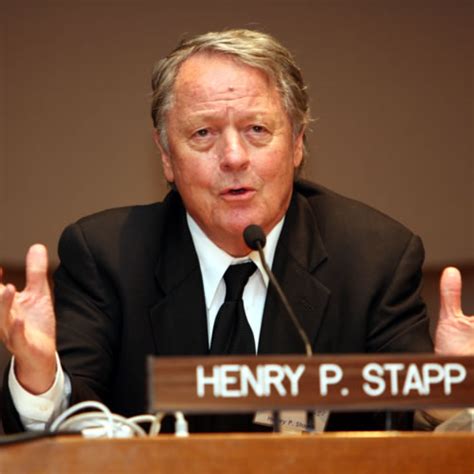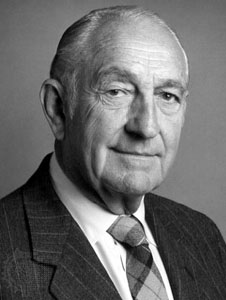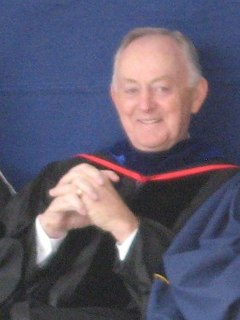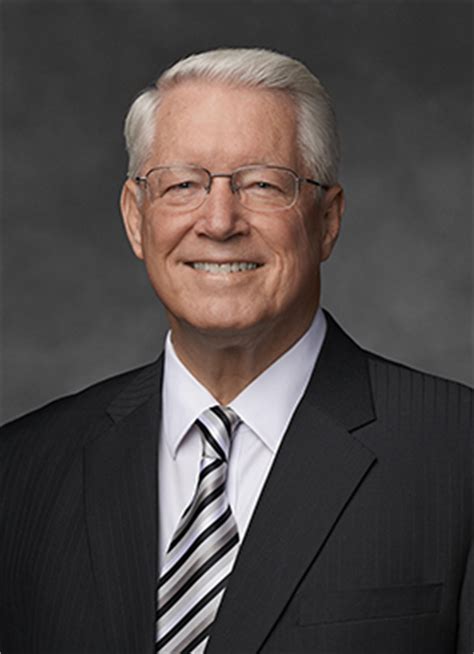A Quote by Anthony Fauci
Science is telling us that we can do phenomenal things if we put our minds and our resources to it.
Related Quotes
Our beliefs about ourselves in relation to the world around us are the roots of our values, and our values determine not only our immediate actions, but also, over the course of time, the form of our society. Our beliefs are increasingly determined by science. Hence it is at least conceivable that what science has been telling us for three hundred years about man and his place in nature could be playing by now an important role in our lives.
People, materials, facilities, money, and time are the resources available to us for conducting our business. By applying our skills, we turn these resources into useful products and services. If we do a good job, customers pay us more for our products than the sum of our costs in producing and distributing them. This difference, our profit, represents the value we add to the resources we utilize.
For many of us, the computer is the means by which we earn a living. To give it a nod, then, is a way of thanking the tool for what it provides in life. It helps put bread on the table and a roof overhead. It gives us work and pleasure, exercises our minds, brings us information, connects us with other people. It is a partner helping us achieve our goals. Nodding also thanks the unseen hands and minds who helped create our machine.
So we see, brethren and sisters that the words of Christ can be a personal Liahona for each of us, showing us the way. Let us now be slothful because of the easiness of the way. Let us in faith take the words of Christ into our minds and into our hearts as they are recorded in sacred scripture and as they are uttered by living prophets, seers, and revelators. Let us with faith and diligence feast upon the words of Christ, for the words of Christ will be our spiritual Liahona telling us all things what we should do.
Essential to our personal faith and development is the unmistakable knowledge that our Father and our Savior want us to succeed. They want us to return to Their presence. Because of Their love for us, They have given us resources to obtain comfort, direction, and strength for our journey home. I speak of prayer, the wonderful and sublime ability to communicate and share our concerns with the Father; the Holy Spirit, which will enlighten and comfort us; and the words of the prophets, both ancient and modern. These resources give us understanding and direction in dealing with our challenges.
In the annals of science fiction, where dystopias rule the imaginative roost, Star Trek stood nearly alone in telling us that our future would be better than our past, that our common problems would be solved, that we, as a species, were fundamentally good, and that the universe would reward us for our goodness.
The paradox is that exactly the reverse is true. Everything that’s really worthwhile in life came to us free; our minds, our souls, our bodies, our hopes, our dreams, our ambitions, our intelligence, our love of family and children and friends and country. All these priceless possessions are free.
But the things that cost us money are actually very cheap and can be replaced at any time. A good man can be completely wiped out and make another fortune. He can do that several times. Even if our home burns down, we can rebuild it. But the things we got for nothing, we can never replace.
Minds that are stupid and incapable of science are in the order of nature to be regarded as monsters and other extraordinary phenomena; minds of this sort are rare. Hence I conclude that there are great resources to be found in children, which are suffered to vanish with their years. It is evident, therefore, that it is not of nature, but of our own negligence, we ought to complain.





































